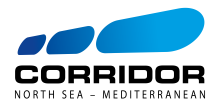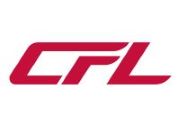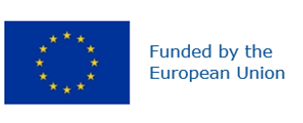There will not be an activity report this year that does not mention the impact of the COVID-19 pandemic. The scale of the event makes it a historic one. The annual report of Rail Freight Corridor North Sea-Med is not an exception. Let us therefore begin with three interesting and ultimately rather positive lessons.
Firstly, this crisis has given a new ‘gain of respect’ to an often invisible sector, that of logistics. While the world went in lockdown, logistics operators, and above all rail operators, were ensuring the continuity of supply for an entire continent. The rail sector has shown great resilience and adaptability, which demonstrates that it will be a force to be reckoned with in the decades to come.
This is rather encouraging.
Secondly, we all have had to reinvent modes of cooperation through sharing tools, digital Platforms and online meetings. And even if many of us miss the interactivity, informality, non-verbal communication of face-to-face meetings, this forced transition to remote working methods has led us to dive into the digital world and discover all its benefits. Work will be a mix of face-to-face and remote work, certainly offering a better balance between efficiency and environmental impact while bringing people together.
This offers perspectives.
And thirdly, this crisis has shown that our institutions, and more generally the «European project», have all the sense they need to face up to the challenges ahead, including that of global warming and its effects, which we are already seeing.
This is reassuring and interesting at the same time.
Besides that, like many Europeans, we were saddened by the withdrawal of the United Kingdom from the European Union, at the corridor level translated by the leave of the Department for Transport of the United Kingdom from the Executive Board at the beginning of the transition period, in January 2020, as well as of Network Rail and Eurotunnel at the end of 2020. However, the Channel Tunnel remains, as does its traffic, and we remain confident that in the near future we will be able to develop a new mode of cooperation with our British colleagues for the benefit of our industry and economy.
Despite the difficult times we face, the European ambition of modal shift continues and RFC North Sea - Med remains a major axis in Western Europe to connect economic hubs as the Benelux, the Paris Region, the Rhone Valley, Switzerland, Northern Italy, Luxembourg or the French Grand Est region.
In 2021, the Permanent Team, the Management Board and Executive Board, will therefore continue the actions undertaken in 2020 to be as close as possible to their customers:
- accompany Railway undertakings throughout their capacity request process,
- increase field trips and customer meetings to assist customers in the deployment of their strategy,
- strengthen bilateral meetings between Infrastructure Managers and Railway undertakings to identify
- the root causes of non-quality and thus improve service reliability,
- continue to monitor until the end of any issue for which the Corridor has been seized by one of its
- customers,
- consolidate cooperation with the terminals, which are our interface with «the rest of the world»!
And in these turbulent times, trust, cooperation and openness remain our guiding principles for pursuing our common ambition to see rail freight develop.
The Rail Freight Corridor North Sea – Mediterranean annual report 2019 with full details, facts & figures, can be found using this link to our website: https://www.rfc-northsea-med.eu/en/page/publication or directly by clicking here.
We wish you a pleasant reading of this document and hope that, in 2021, we will continue to work closely together towards the successful development of the corridor.
Valérie Verzele, Chair of the Executive Board of RFC NSM
Michaël Dierickx, Chair of the Assembly of the Management Baord of RFC NSM
Yann Le Floc’h, Managing Director of RFC NSM






